𝑪𝑯𝑬𝑫 𝑴𝑰𝑴𝑨𝑹𝑶𝑷𝑨 𝑨𝑵𝑫 𝑪𝑯𝑬𝑫 𝑶𝑺𝑫𝑺 𝑶𝑵 𝑻𝑯𝑬 𝑮𝑹𝑶𝑼𝑵𝑫 𝑾𝑰𝑻𝑯 𝑷𝑺𝑼 𝑰𝑵𝑺𝑻𝑰𝑻𝑼𝑻𝑰𝑶𝑵𝑨𝑳 𝑺𝑻𝑼𝑫𝑬𝑵𝑻 𝑷𝑹𝑶𝑮𝑹𝑨𝑴𝑺 𝑨𝑵𝑫 𝑺𝑬𝑹𝑽𝑰𝑪𝑬𝑺 (𝑰𝑺𝑷𝑺) 𝑼𝑵𝑫𝑬𝑹 𝑻𝑯𝑬 𝑺𝑻𝑼𝑫𝑬𝑵𝑻 𝑨𝑭𝑭𝑨𝑰𝑹𝑺 𝑨𝑵𝑫 𝑺𝑬𝑹𝑽𝑰𝑪𝑬𝑺 𝑻𝑶 𝑬𝑵𝑺𝑼𝑹𝑬 𝑴𝒆𝒅𝒊𝒄𝒂𝒍 𝑺𝒄𝒉𝒐𝒍𝒂𝒓𝒔𝒉𝒊𝒑 𝒂𝒏𝒅 𝑹𝒆𝒕𝒖𝒓𝒏 𝑺𝒆𝒓𝒗𝒊𝒄𝒆 (𝑴𝑺𝑹𝑺) 𝑷𝑹𝑶𝑮𝑹𝑨𝑴 𝑺𝑼𝑺𝑻𝑨𝑰𝑵𝑨𝑩𝑰𝑳𝑰𝑻𝒀
Events
June 05, 2024
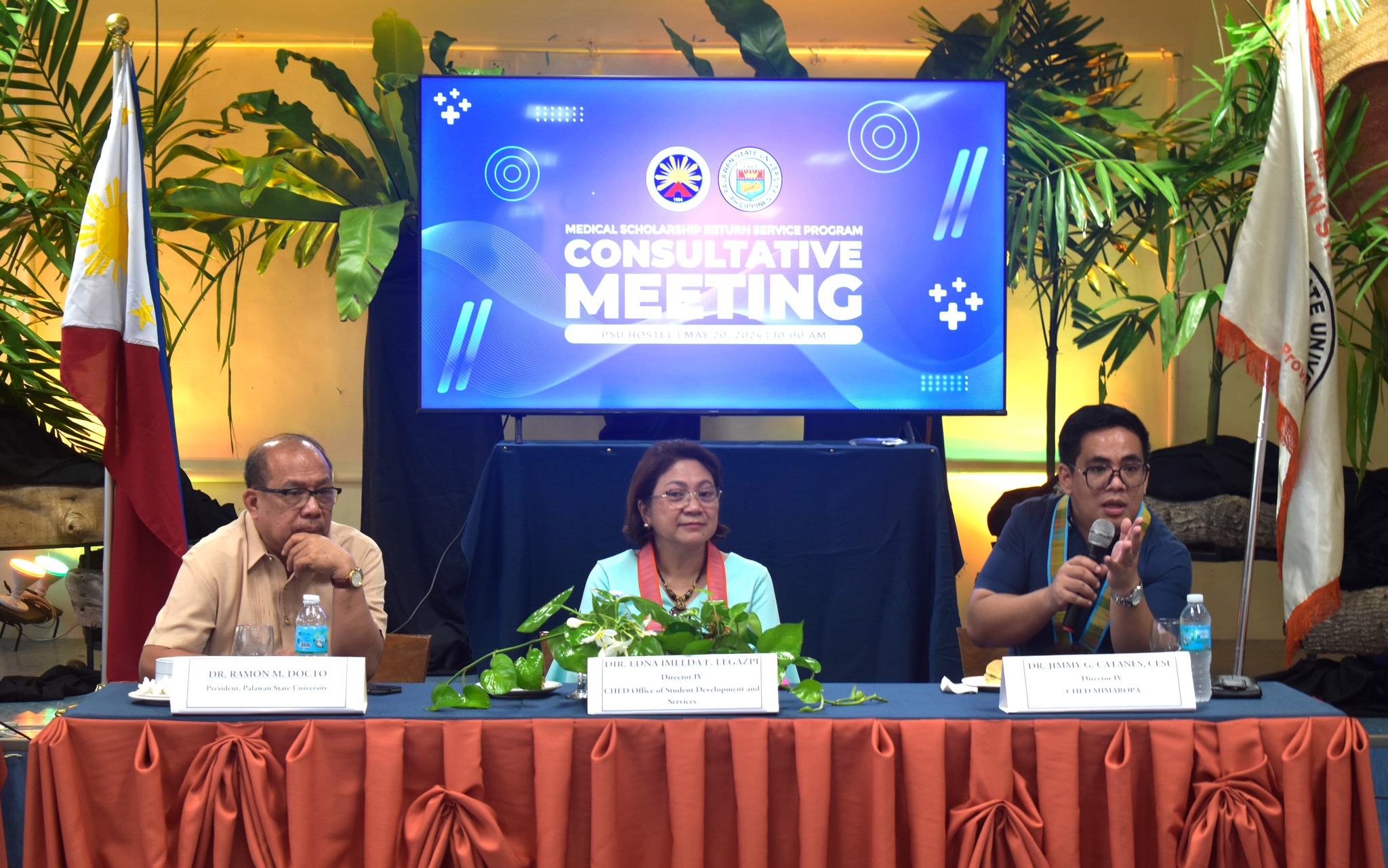
CHED MIMAROPA and CHED Office of Student Development Services (OSDS) spearheaded a consultative meeting to discuss the progress and future of the Medical Scholarship and Return Service (MSRS) Program. This initiative was conducted in collaboration with the Institutional Student Programs and Services (ISPS) under the Student Affairs and Services of Palawan State University (PalawanSU) on May 20, 2024, 10:00 am at PSU Hostel, Main Campus.
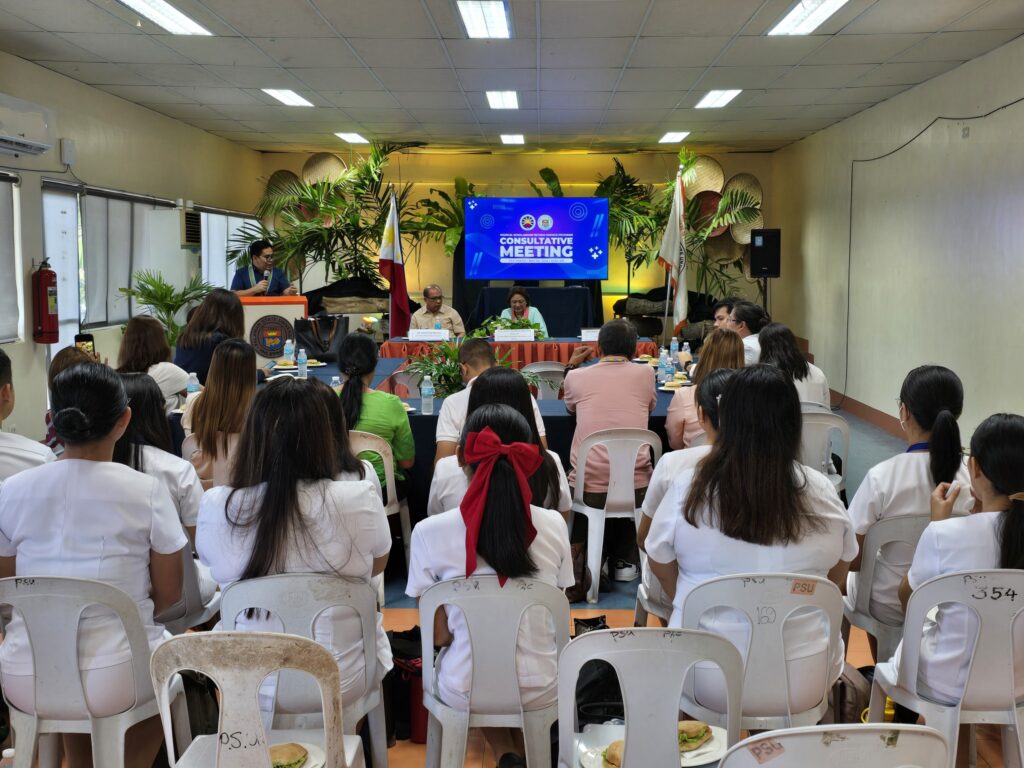
To demonstrate their support for the MSRS Program, CHED MIMAROPA Regional Director Jimmy G. Catanes and OSDS Director Prof. Edna Imelda Fernandez-Legazpi were present during the activity. Furthermore, to emphasize the importance placed on this initiative by PalawanSU, the university was well-represented by its President, Ramon M. Docto, alongside key officials: Dr. Maila N. Lucero (Vice President for Academic Affairs), Dr. Venzon L. Limpiada (Vice President for Finance and Administration), and Dr. Carlos Alfonso C. Salvador (Vice President for Student Affairs and Services). The inaugural cohort of PalawanSU’s School of Medicine, comprised of fifteen (15) medical students was joined by Faculty members Dr. Ronnie Mayo (Associate Dean), Dr. Karen A. Acosta, Dr. Paul S. Castillo, and Dr. Christine Lorraine Chua.
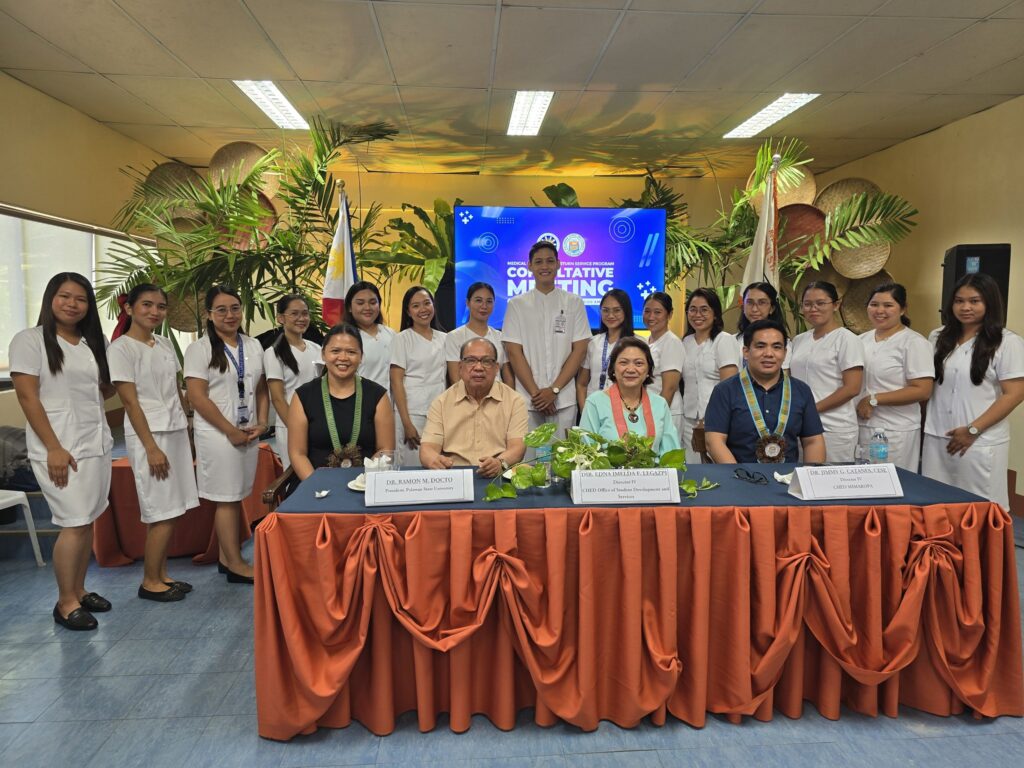
The meeting was designed to engage with MSRS scholars, address their concerns, and discuss ways to ensure the sustainability of the program. The Medical Scholarship and Return Service Program is set to bring substantial improvements in healthcare access and quality. As it addresses immediate healthcare needs, it also contributes to the long-term development and sustainability of the region. Its focus on education, healthcare equity, and community service, aligns closely with several Sustainable Development Goals (SDGs). The feedback session during the activity allowed the scholars to articulate how the program affected their lives at this early period of its implementation. The narratives of the students signifies that the program is moving in the direction of and contributing towards the achievement of the following SDGs.
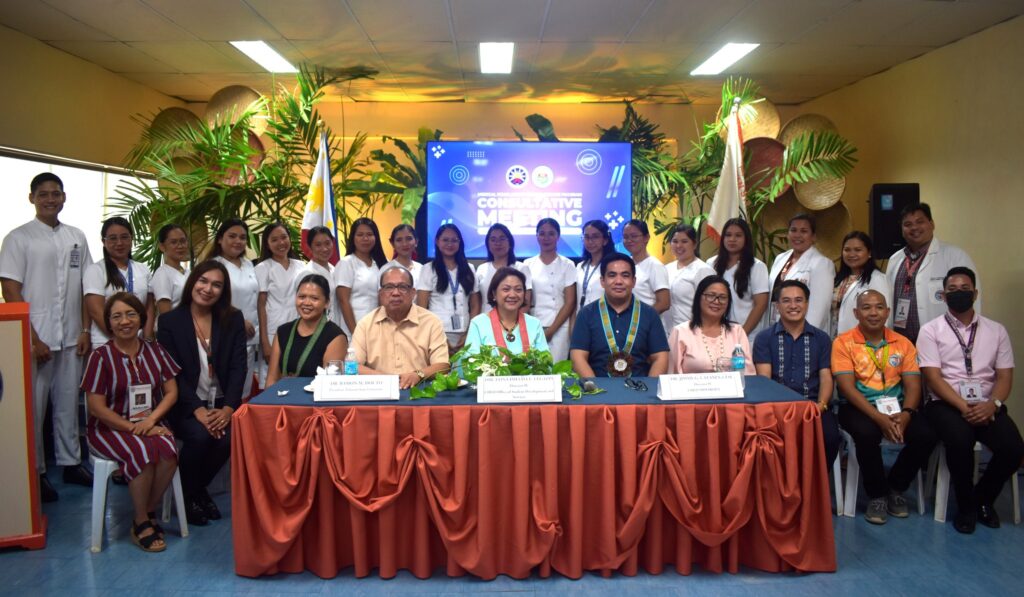
Good Health and Well-being (SDG 3)
The primary aim of the “Doktor Para sa Bayan Act” is to ensure equitable access to quality healthcare, particularly in underserved and rural areas. Palawan is poised to see an improvement in healthcare services. One immediate impact is the increase in preventative care and early treatment of diseases, which can lead to better health outcomes for the community. The presence of more healthcare professionals also means that chronic conditions can be managed more effectively, reducing the overall burden of disease and enhancing the well-being of the population.
Quality Education (SDG 4)
The scholarship program makes medical education more accessible to students from diverse socio-economic backgrounds, ensuring that talented individuals who might not have had the means to pursue a medical degree can now achieve their dreams.
PalawanSU School of Medicine is at the forefront of democratization of education, providing high-quality education and training to its students. The emphasis on practical, community-based learning ensures that graduates are not only academically proficient but also culturally and socially attuned to the needs of the people they will serve.
Decent Work and Economic Growth (SDG 8)
The implementation of the MSRS program creates significant employment opportunities for new medical graduates, particularly in rural and underserved areas of Palawan. This also stimulates economic growth in these communities.
By investing in human capital within the healthcare sector, the program supports the development of a robust healthcare system, which is essential for a thriving economy. The presence of well-trained healthcare professionals can attract other investments and services to the region, further boosting economic activity and improving the quality of life for residents.
Reduced Inequalities (SDG 10)
One of the most profound impacts of the “Doktor Para sa Bayan Act” is its potential to reduce inequalities in healthcare access. By mandating that scholarship recipients serve in underserved areas, the program ensures that marginalized and remote communities receive the medical attention they need. The program promotes social equity. Educational opportunities afforded by the scholarship program enable students from disadvantaged backgrounds to rise above their circumstances and contribute meaningfully to society.
Sustainable Cities and Communities (SDG 11)
Healthier communities are more sustainable and resilient. The influx of new doctors into Palawan’s underserved areas will help build stronger, healthier communities capable of supporting their populations more effectively. Improved healthcare services can lead to better health outcomes, which in turn can enhance productivity and quality of life.
By addressing the root causes of poor health and providing continuous medical care, these communities become more viable places to live and work. This not only helps retain residents but also attracts new ones, contributing to the overall development and sustainability of the region.
Partnerships for the Goals (SDG 17)
The success of the MSRS program relies on strong partnerships between government agencies, educational institutions, and healthcare providers. In Palawan, these partnerships are crucial for the effective implementation and sustainability of the program.
Collaboration with local and national government bodies ensures that resources are mobilized efficiently and that the program receives the necessary support.
With the active participation of CHED Regional Director Jimmy G. Catanes and Prof. Edna Imelda Fernandez-Legazpi, the event also underscored a strong commitment to student welfare and institutional excellence. The outcomes of this meeting are expected to lead to the implementation of innovative strategies that will greatly benefit the student community at PSU.
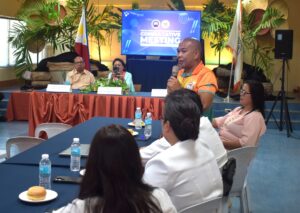
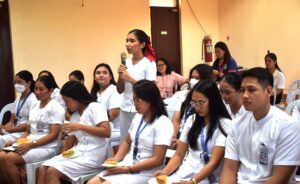
The activity was coordinated and facilitated by Mr. Donald Janaban, Director of PSU Institutional Student Programs and Services and Ms. Lesele O. Condeza, CHED MIMAROPA Education Supervisor II and MSRS Coordinator.

